Filter by
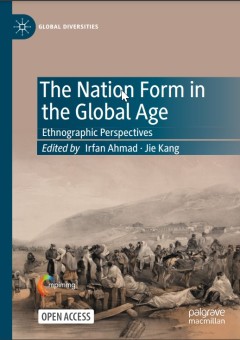
The Nation Form in the Global Age
These incisive essays explore nationalist violence and ethno-religious purification in Europe, South Africa, the Middle East, India, and China. Readers will encounter the extreme precarity of Islamic minorities and migrants, as well as inspiring explorations of alternative imaginaries beyond the nation form. Kenneth Dean, Professor, National University of Singapore. This excellent edited …
- Edition
- 10
- ISBN/ISSN
- 9783030855802
- Collation
- xix; 386p; ill
- Series Title
- -
- Call Number
- 320.54 NAT I
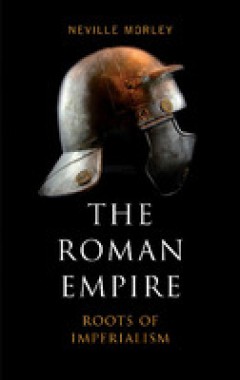
The Roman Empire; Roots Of Imperialism
A millennium and a half after the end of the period of its unquestioned dominance, Rome remains a significant presence in western culture. This book explores what the empire meant to its subjects. The idea of Rome has long outlived the physical empire that gave it form, and now holds sway over vastly more people and a far greater geographical area than the Romans ever ruled. It continues to sha…
- Edition
- -
- ISBN/ISSN
- 9781849645478
- Collation
- Knowledge Unlatched (KU)
- Series Title
- -
- Call Number
- -
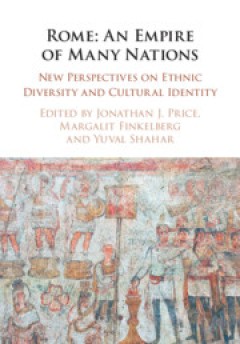
Rome: An Empire of Many Nations New Perspectives on Ethnic Diversity and Cul…
The center of gravity in Roman studies has shifted far from the upper echelons of government and administration in Rome or the Emperor's court to the provinces and the individual. The multi-disciplinary studies presented in this volume reflect the turn in Roman history to the identities of ethnic groups and even single individuals who lived in Rome's vast multinational empire. The purpose is le…
- Edition
- -
- ISBN/ISSN
- 9781009256193
- Collation
- xii, 428 p ; ill
- Series Title
- -
- Call Number
- 937.06 ROM J
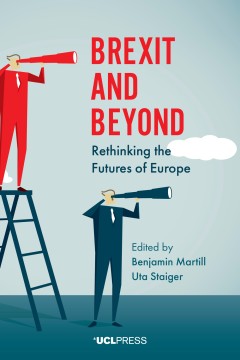
Brexit and beyond : rethinking the futures of Europe
Brexit will have significant consequences for the country, for Europe, and for global order. And yet much discussion of Brexit in the UK has focused on the causes of the vote and on its consequences for the future of British politics. This volume examines the consequences of Brexit for the future of Europe and the European Union, adopting an explicitly regional and future-oriented perspective m…
- Edition
- -
- ISBN/ISSN
- 9781787352759
- Collation
- xv, 291 p.
- Series Title
- -
- Call Number
- 341.24220941 BRE B
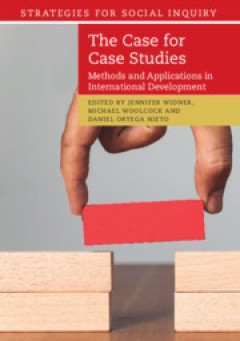
The Case for Case Studies : Methods and Applications in International Develop…
This book seeks to narrow two gaps: first, between the widespread use of case studies and their frequently 'loose' methodological moorings; and second, between the scholarly community advancing methodological frontiers in case study research and the users of case studies in development policy and practice. It draws on the contributors' collective experience at this nexus, but the underlying iss…
- Edition
- -
- ISBN/ISSN
- 9781108688253
- Collation
- xiii, 330 p
- Series Title
- -
- Call Number
- 300.72 CAS J
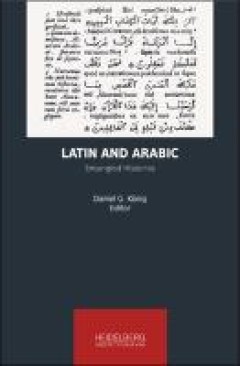
Latin And Arabic
As linguistic systems comprising a large variety of written and oral registers including derivate “languages” and “dialects,” Latin and Arabic have been of paramount importance for the history of the Euromediterranean since Antiquity. Moreover, due to their long-term function as languages of administration, intellectual activity, and religion, they are often regarded as cultural markers…
- Edition
- -
- ISBN/ISSN
- 9783947732265
- Collation
- -
- Series Title
- -
- Call Number
- Interfaith relations
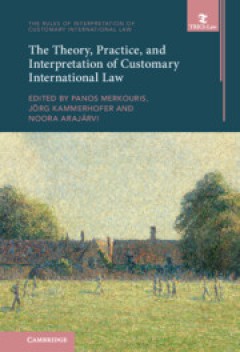
The Theory, Practice, and Interpretation of Customary International Law
Although customary international law (CIL) has been central to international law from its inception, it is often misunderstood. This edited volume remedies that problem by tracing the history of CIL and provides an in-depth study of its theory, practice, and interpretation. Its chapters tackle the big questions which surround this source of international law such as: what are the rules that reg…
- Edition
- -
- ISBN/ISSN
- 9781009025416
- Collation
- xxxiv, 648 p
- Series Title
- -
- Call Number
- 341 THE A
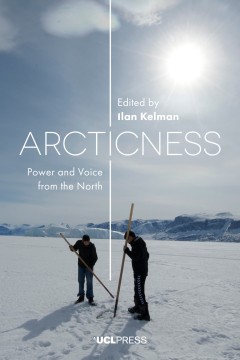
Arcticness : power and voice from the North
Climate change and globalisation are opening up the Arctic for exploitation by the world – or so we are told. But what about the views, interests and needs of the peoples who live in the region? This volume explores the opportunities and limitations in engaging with the Arctic under change, and the Arctic peoples experiencing the changes, socially and physically. With essays by both academic…
- Edition
- -
- ISBN/ISSN
- 9781787350137
- Collation
- xv, 204 p. ill;
- Series Title
- -
- Call Number
- 998 ARC I
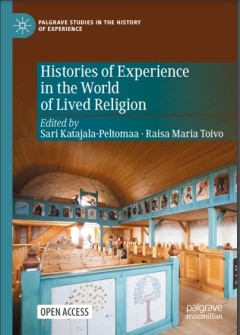
Histories of experience in the world of lived religion
'At a historic moment, when religion shows all its social and political strength in various post-modern societies around our globe, this fascinating collection of studies from the Middle Ages to twentieth-century Europe demonstrates all the richness and innovative force of investigating individual and shared experiences when questioning the cultural, political and social place of religion in so…
- Edition
- 14
- ISBN/ISSN
- 9783030921408
- Collation
- viii; 305p;
- Series Title
- -
- Call Number
- 204.2 HIS S
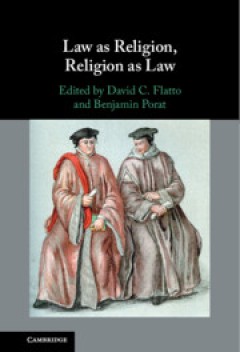
Law as Religion, Religion as Law
The conventional approach to law and religion assumes that these are competing domains, which raises questions about the freedom of, and from, religion; alternate commitments of religion and human rights; and respective jurisdictions of civil and religious courts. This volume moves beyond this competitive paradigm to consider law and religion as overlapping and interrelated frameworks that stru…
- Edition
- -
- ISBN/ISSN
- 9781108760997
- Collation
- vii, 404 p ; ill
- Series Title
- -
- Call Number
- 208.4 LAW
 Computer Science, Information & General Works
Computer Science, Information & General Works  Philosophy & Psychology
Philosophy & Psychology  Religion
Religion  Social Sciences
Social Sciences  Language
Language  Pure Science
Pure Science  Applied Sciences
Applied Sciences  Art & Recreation
Art & Recreation  Literature
Literature  History & Geography
History & Geography